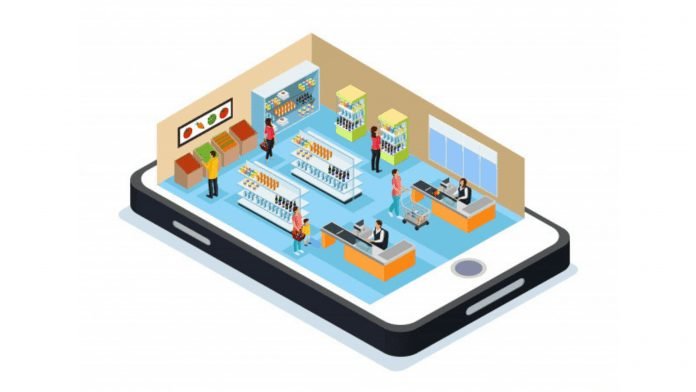Last Updated on August 4, 2022 by
Online shopping is not only more convenient for shoppers but also better for the environment. It reduces the carbon footprint of consumers in so many ways. For example, you need not travel to and from the stores any more, emitting fumes from your car and contributing to the widespread pollution.
Let us explain how online shopping can add to the sustainability movement.
Table of Contents
Eco-friendly packaging
When you go shopping, you may carry bags that may not be sustainable or eco-friendly. Further, the stores may offer some additional packaging that further adds to environmental hazards. All of this can be reduced by shopping online. If the stores are aware of the ‘green’ factor, they may opt for eco-friendly packaging and refrain from using plastics. As the goods will be delivered to your doorstep, you need not worry about the package getting ripped off on the way. At home, you can recycle and reuse the packaging material instead of throwing it away immediately.
Electronic bills
Online shopping is digitised, which reduces the use of paper. You can ask the store owners not to send paper bills and opt for its digital services instead. This will reduce the load on trees, as papers give rise to deforestation. Most online stores let you pay directly from your account, which contributes to a cashless future. When you buy from grocery stores on credit, you further limit the use of cash, which indirectly helps you reduce deforestation, as you pay online within a specified period.
Limited transportation
If you think deeply, you may be able to guess the number of times the goods are being transferred from the manufacturer to the end customers. Firstly, it is loaded on a truck to reach the brick and mortar shop, where it is shelved and stored. Cold storage requires additional equipment, which further increases the carbon footprint. Then you visit the store in a private or public vehicle, which emits harmful substances in the air. You take your things and drive back, further contributing to air pollution. In online shopping, however, at least one commute is subtracted from the process, reducing the emissions to some extent. And as the delivery person carries more than one order, these emissions are further reduced.
Low-tech deliveries
Instead of motorbikes, many deliveries are done on bicycles, which is a more eco-friendly option. If the location isn’t too far, and the delivery person is more environment-conscious, s/he may choose to ride a bicycle to deliver goods at your doorstep. From zero-emission food deliveries to dairy products, all can be done in an eco-friendly manner by the professionals. And when you buy groceries on credit from an online store, there is no question of sending bills on paper or counting cash, which is, again paper.
Unnecessary shopping
When you hit the stores, you tend to go beyond your budget to buy things that you may not need immediately. This is called retail therapy, as you tend to buy attractive consumer products when you see them on the shelves. It may increase your carbon footprint, as you invest in extra packaging and stiff that may not be environment-friendly. Online shopping reduces the chances of such mistakes, as you buy what you need, and in bulk.
Repeated visits
If you do not find something you need, you may need to visit the store more than once. It increases your carbon footprint, as your transportation system emits harmful fumes in the air. In the case of online shopping, you can easily visit the store when the out-of-stock items get refurbished and buy anytime you want without leaving your home.
So you see how online shopping is way more environment-friendly than real-time shopping? Have you found a reliable online grocery store yet? You may check out Udhaar Shop to get your hands on some amazing deals without paying upfront.
Also Read: How Digital Transformation Is Impacting Insurance Industry



























